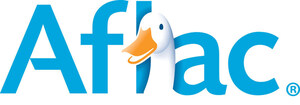Too many US adults are skipping wellness appointments that can help save their lives
1 in 2 American adults admit to avoiding important health screenings
COLUMBUS, Ga., June 28, 2023 /PRNewswire-HISPANIC PR WIRE/ -- Americans don't seem to be on a path to living healthier, longer lives, according to a study released by Aflac Incorporated, a leading provider of supplemental health insurance in the U.S.1 The Wellness Matters survey, conducted among 2,001 employed adults in the U.S., examines attitudes, habits and opinions about health and preventive care.
The nationally representative survey finds that many — 1 in 4 — simply skip regular checkups because they are feeling healthy. Other reasons cited include conflicts with work hours (23%); not thinking about it (22%); dislike of going to the doctor (21%); insurance issues (21%); fear of hearing bad health news (18%); and time commitment to go to the doctor (16%).2
According to the survey, about half of adults have avoided at least one common health screening, including tests for certain diseases and other exams. At the same time, 51% of respondents who have had cancer said their diagnosis came as a result of a routine checkup or screening.2
Men and women do not see eye to eye on their current and future health.
Survey findings show the majority of men have a positive outlook regarding all aspects of their current health, including their ability to control it in the future: weight/BMI (56% men, 38% women); financial health (53% men, 40% women); mental health (66% men, 56% women); and physical health (69% men, 54% women). Hispanic men and women also have differing outlooks: weight/BMI (64% men, 45% women); financial health (57% men, 44% women); mental health (71% men, 62% women); and physical health (77% men, 63% women).2
Generational points of view show wide gap in control over health.
According to the survey, Gen Z [ages 18-24] feels the least control over their mental and physical health, yet they are the most likely to skip annual wellness visits that could empower them to feel more in control. Baby boomers [ages 57-65] (64%) and Gen X [ages 41-56] (55%) think preventive care is very important to their overall health and well-being, versus millennials [ages 25-40] (49%) and Gen Z (40%).2
Managing health and wellness does not come easy for U.S. Hispanic population.
Among Hispanic survey respondents, 31% indicate language is a barrier to accessing preventive care resources. As a result, 72% have avoided a wellness screening, compared to 46% who do not feel it is a barrier. Many Hispanic respondents also agree (61%) that health care providers and organizations need to better engage and educate the Latino community about the benefits of being proactive with their health and wellness.2
Screenings work and lead to better outcomes.
A significant number (72%) of Hispanic survey respondents diagnosed with cancer found out at a routine medical exam or regularly scheduled annual screening, compared to 46% of the general population.2
An analysis of Aflac internal data reveals its cancer wellness benefit claims dropped in 2022 compared to 2019 — notably among younger generations. For every 1,000 Aflac policyholders, cancer policy wellness claims dropped 11% for those in their 20s and 9% for those in their 30s.3
"The results of the Wellness Matters survey put a spotlight on the need for individuals to have a more proactive approach to their health care," said Tom Morey, chief actuary, Aflac U.S. "That is why Aflac is encouraging policyholders and others to take control of their health by building good health habits early, asking health and insurance providers questions, and prioritizing routine wellness checkups."
Take wellness matters into your own hands — sooner rather than later.
According to the survey, individuals are more likely to schedule checkups and prioritize wellness screenings as adults if their parents or caregivers demonstrated good habits, such as scheduling childhood wellness appointments, early in life. Most individuals are self-motivated to go to the doctor, most notably Baby boomers (64%), followed by Gen X (45%), millennials (35%), and Gen Z (29%). Additionally, encouragement from loved ones and financial incentives can help motivate individuals to seek preventive care. Many (64%) say they benefit from friends and family who encourage them to go to the doctor for routine visits. Most (85%) are more likely to go to a routine checkup appointment if a cash incentive was offered to help with the cost.2
Learn more at Aflac.com/WellnessMatters.
ABOUT THE STUDY
The 2023 Wellness Matters Survey was conducted among a nationally representative sample of 2,001 employed U.S. adults ages 18-65 in June 2023 by Kantar Profiles on behalf of Aflac. As part of the Hispanic population report, 200 Spanish-speaking respondents were added for a total of 580 respondents to ensure a robust understanding of this population. The additional 200 are not included in the general population report in order to maintain the nationally representative sample.
ABOUT AFLAC INCORPORATED
Aflac Incorporated (NYSE: AFL), a Fortune 500 company, has helped provide financial protection and peace of mind for more than 67 years to millions of policyholders and customers through its subsidiaries in the U.S. and Japan. In the U.S., Aflac is the No. 1 provider of supplemental health insurance products.1 In Japan, Aflac Life Insurance Japan is the leading provider of cancer and medical insurance policies in force. In 2021, the company became a signatory of the Principles for Responsible Investment (PRI). In 2022, the company was included in the Dow Jones Sustainability North America Index for the ninth year, the World's Most Ethical Companies by Ethisphere for the 17th consecutive year, Fortune's World's Most Admired Companies for the 22nd time and Bloomberg's Gender-Equality Index for the fourth consecutive year. To find out how to get help with expenses health insurance doesn't cover, get to know us at aflac.com or aflac.com/espanol. Investors may learn more about Aflac Incorporated and its commitment to ESG and social responsibility at investors.aflac.com under "Sustainability."
Media contact: Angie Blackmar, 706-392-2097 or [email protected]
Analyst and investor contact: David A. Young, 706-596-3264, 800-235-2667 or [email protected]
1 LIMRA 2021 US Supplemental Health Insurance Total Market Report.
2 Aflac Wellness Matters Survey, 2023.
3 Aflac internal sources.
This is a brief product overview only. Coverage may not be available in all states. Benefits/premium rates may vary based on plan selected. Optional riders may be available at an additional cost. Plans and riders may also contain a waiting period. Refer to the exact plans and riders for benefit details, definitions, limitations and exclusions. For availability and costs, please contact your local Aflac agent/producer. For availability and costs, please visit www.aflac.com.In Arkansas, Policies B70100AR, B70200AR, B70300AR, B7010EPAR, B7020EPAR. In Delaware, Policies B70100DE, B70200DE & B70300DE. In Idaho, Policies B70100ID, B70200ID, B70300ID, B7010EPID, B7020EPID. In New York, Policies, NY78100–NY78400. In Oklahoma, Policies B70100OK, B70200OK, B70300OK, B7010EPOK, B7020EPOK. In Oregon, Policies B70100OR, B70200OR, B70300OR, B7010EPOR, B7020EPOR. In Pennsylvania, Policies B70100PA, B70200PA, B70300PA. In Texas, Policies B70100TX, B70200TX, B70300TX, B7010EPTX, B7020EPTX. In Virginia, policies A75100VA–A75300VA.
Coverage is underwritten by American Family Life Assurance Company of Columbus. In New York, coverage is underwritten by American Family Life Assurance Company of New York.
Aflac's family of insurers include American Family Life Assurance Company of Columbus, American Family Life Assurance Company of New York, Continental American Insurance Company, and Tier One Insurance Company.
Aflac | WWHQ | 1932 Wynnton Road | Columbus, GA 31999
Logo - https://mma.prnewswire.com/media/602438/4139994/AFLAC_Logo.jpg
SOURCE Aflac

WANT YOUR COMPANY'S NEWS FEATURED ON PRNEWSWIRE.COM?
Newsrooms &
Influencers
Digital Media
Outlets
Journalists
Opted In






Share this article